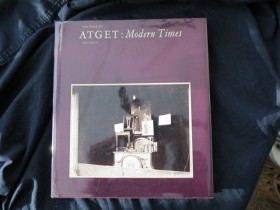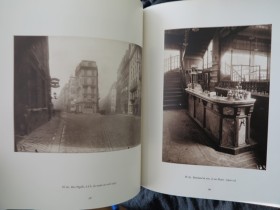


Sune Jonsson: Nine reflections /6
… The ideal situation, of course, is that in which the photographer is his own client. Then the assignment is a vital function of the photographer himself; then his depiction of reality will occur at that point where he himself stands as a human being.
NINE REFLECTIONS CONCERNING 1/125th
By Sune Jonsson (1978)
6
The assignment situation, upon which the photographer’s personal relationship to the subject matter is ultimately dependent, is a vital part of the documentary methodology. If it is alleged that knowledge and insight should be the bases of all depiction of reality, then the assignment situation must be crucial to the genuineness of the documentation. By the way in which the assignment situation is regarded, one can also tell what status – in artistic-professional terms – the client is prepared to accord the photographer.
The ideal situation, of course, is that in which the photographer is his own client. Then the assignment is a vital function of the photographer himself; then his depiction of reality will occur at that point where he himself stands as a human being. From every viewpoint, it must be an optimal advantage to be able to seek out the subject matter that is made up of one’s own internal and external landscapes. Assignment and need for expression then become synonymous. The subject matter itself then becomes the client.
Paris at the beginning of the century: broad stairways, grotesquely bulging bourgeois homes, rear courtyards, the poor people of the streets, show windows, the aura of light over the parks and the Seine. A strange photo-tapestry, Atget‘s own unreal world, something very near and living, an objectivized vision of an existential experience. Jacques Henri Lartigue‘s diary pictures from the 20th century: a life affirming and humorous penetration of the games of the upper class, a situation report on the photographer’s own place in life, life-feeling portrayed. Sweden’s Larka-Karl filling his pictures of the lives and manners of the common people with the ego’s serious local patriotism and eminent knowledge of environment and tradition. A slightly misanthropic Patrik Johnson photographically registring with gentle satire and distinct documentary intuition the petit bourgeoisie of Falkenberg, a stranger seeking via his pictures to establish concrete social relations with his surroundings, to assuage the solitude of his heart. All this self-assumed yet at the same time compelled by the subject matter itself.
And the working hypothesis concerning 20thcentury man pursues August Sander through the decades. In picture after picture, he seriously isolates the human myths of German class society, photographically depicting the professional categories and all social attitudes of the Weimar Republic. Generalization is his artistic method. In his case, it is based on a sort of inherited and definitive knowledge of appraisals, traditions, manipulations, and roles – those things that constitute the concretion of society’s inner life. His Deutschenspiegel is a self-assignment, and through it he gives us a universal atlas of man’s eternal role-playing. (To be continued on Filmkommentaren with three more reflections…)
FOTO
Sune Jonsson: Småbrukarparet Tea och Albert Johansson, Väst om sjön, Nyåker, Nordmaling,1956. Sune Jonsson skriver i billedteksten i sin bog Album – fotografier fem decennier, 2000, hvorfra billedet er hentet: ”Albert Johansson hade arbetat med pottaskebränning och salpetersjudning, han var jägare och fiskare, hade deltagit i bäckflottningen i Leduån. Varannan dag rodde han med en mjölkkruka över sjön för transport till mejeriet i Nordmaling.”
https://randersbiografien.wordpress.com/museum-samling/ (ABN om Sune Jonsson)
Finn Larsen: Eugène Atget vignet, 2016

